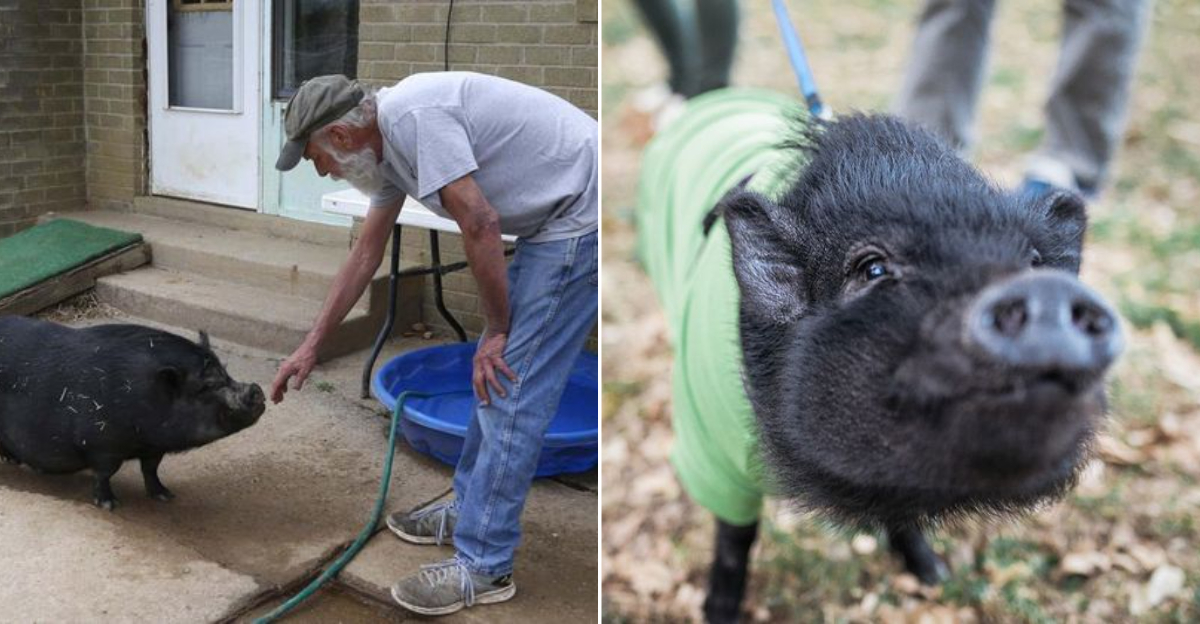Mini pigs have captured the hearts of many Georgians looking for unique pets with personality plus.
These intelligent creatures offer companionship similar to dogs but with their own special charm and challenges.
Before you bring home your own porcine pal in the Peach State, there are some surprising regulations and requirements you should know about.
1. Permits Are Mandatory, Not Optional
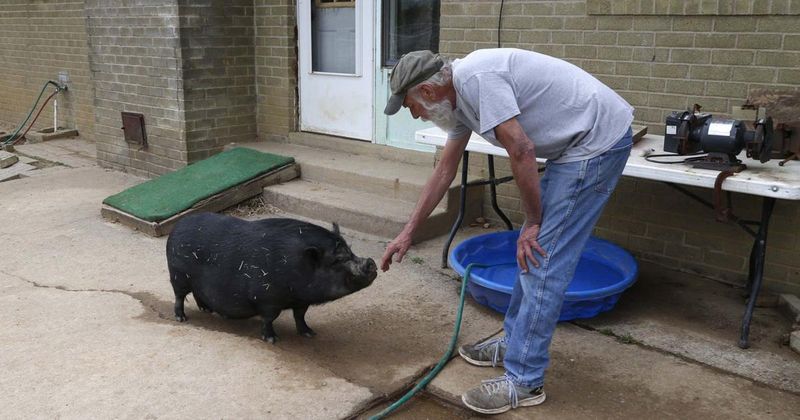
Last summer, I learned the hard way that Georgia doesn’t mess around with pig paperwork. Every mini pig owner must obtain a livestock permit from the Georgia Department of Agriculture, regardless of whether you consider your porker a pet or livestock.
The application process includes proof of adequate housing, proper fencing, and sometimes even property inspections. Fees typically range from $25-100 depending on your county.
Failure to register can result in hefty fines starting at $500 or even confiscation of your pet in extreme cases. Don’t make my mistake of assuming urban pet pigs are exempt – the law applies statewide, even for that adorable potbellied piglet.
2. The 150-Pound Weight Limit Myth
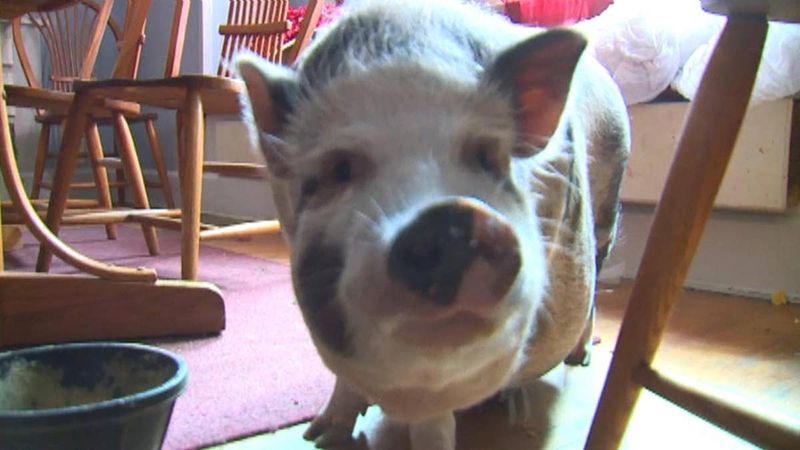
“My teacup pig will stay tiny forever!” I once believed this common misconception sold by some unscrupulous breeders. The truth? Georgia defines mini pigs as swine weighing under 150 pounds at maturity, but most so-called miniature pigs will reach 100-150 pounds regardless of what sellers promise.
Genetics, not feeding practices, primarily determine your pig’s adult size. Even properly fed pigs labeled as “micro” or “teacup” typically reach 50-150 pounds – far larger than many owners expect.
When my “mini” Hamlet hit 120 pounds at age three, I wasn’t prepared for the space requirements. Always research the specific breed and request to see the fully-grown parents before committing to pig parenthood.
3. Space Requirements Exceed Expectations
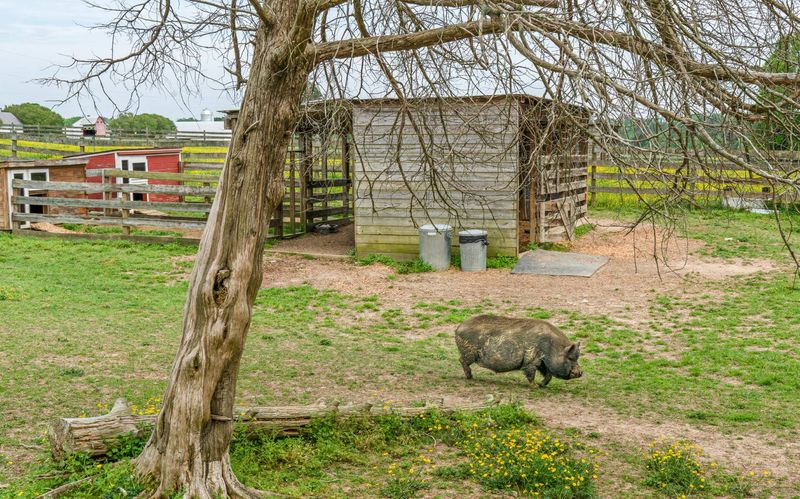
My first apartment-raised piglet quickly outgrew our modest space! Georgia regulations specify minimum living area requirements that surprise most new owners. Indoor pigs need at least 150 square feet of dedicated living space, while outdoor pigs require minimum 400 square feet of yard area per pig.
Mini pigs also need temperature-controlled environments – Georgia’s summer heat can be dangerous without proper shade and cooling options. During winter, insulated shelters with bedding are mandatory when temperatures drop below 60°F.
Remember that pigs are active, curious animals who root and explore by nature. My Penelope destroyed my garden in minutes when given inadequate space. Providing appropriate rooting areas with soft soil can help satisfy this instinct without sacrificing your landscaping.
4. Health Checks And Vaccinations Are Required By Law
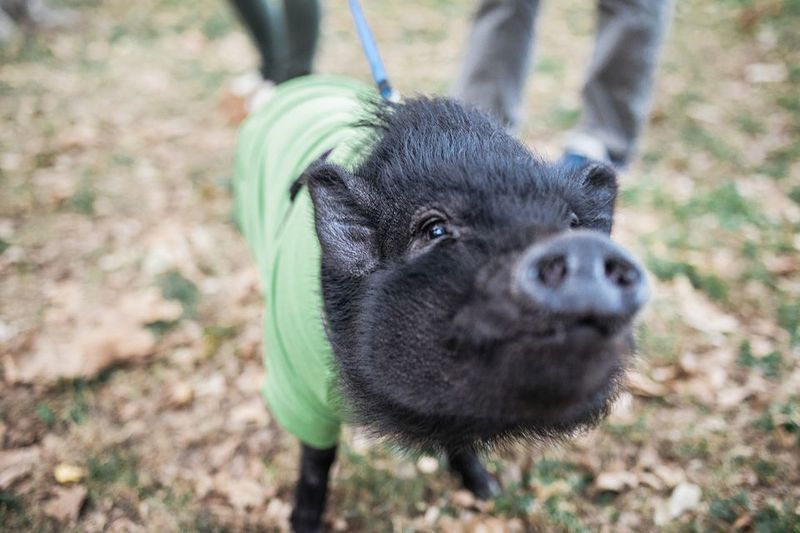
Veterinary care shocked my budget when I first adopted Wilbur! Georgia law mandates regular health certificates and specific vaccinations for all swine, including pet mini pigs. Finding a qualified vet presents another challenge – most small animal practitioners don’t treat pigs, while large animal vets rarely make house calls for single pets.
Annual vaccinations must include erysipelas, leptospirosis, and parvovirus at minimum. Quarterly deworming is also recommended, especially in Georgia’s warm climate where parasites thrive.
The Georgia Department of Agriculture can request health documentation during inspections or complaints. I maintain a detailed health log and vaccination record for Wilbur, which has saved me headaches during county inspections. Budget approximately $300-500 annually for basic pig healthcare.
5. Zoning Restrictions Vary Dramatically By Location
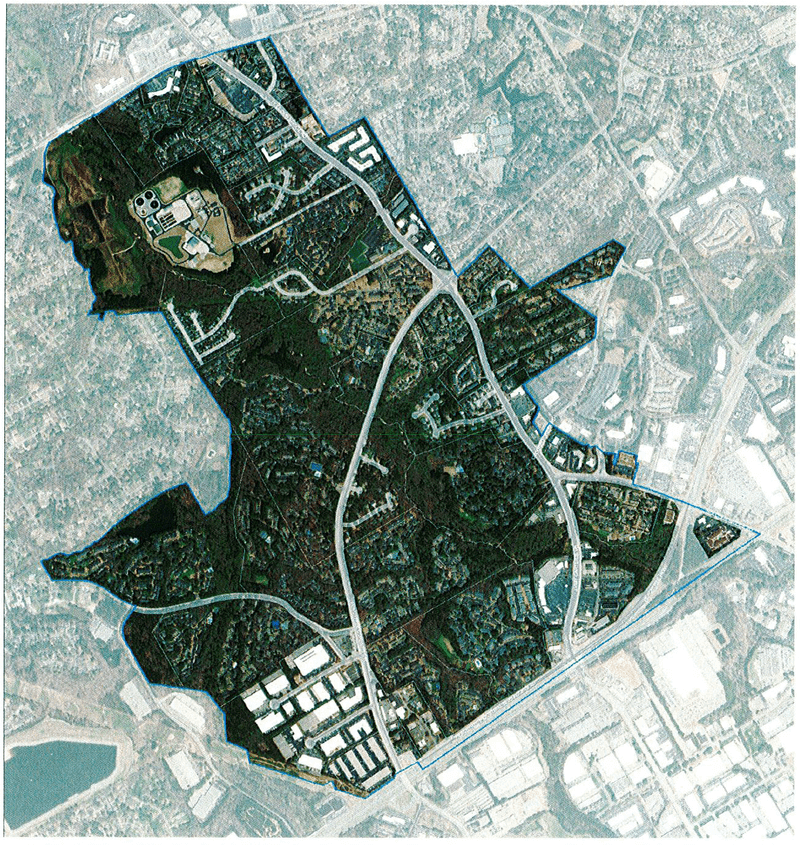
Moving to Atlanta with my mini pig Daisy taught me that Georgia’s zoning laws are a patchwork quilt of regulations. While rural counties typically allow mini pigs with minimal restrictions, urban and suburban areas often classify all swine as livestock regardless of size or purpose.
Atlanta proper prohibits pigs entirely within city limits, while Savannah allows them with special permits. Some HOAs and neighborhood covenants ban pigs even when local ordinances permit them.
Before bringing home a piggy companion, I recommend requesting written confirmation from both your local zoning office and property manager. My neighbor in Marietta received a compliance violation despite verbal approval from a county employee. The appeals process took months and resulted in relocating her beloved pet to a farm sanctuary.
6. Waste Management Rules Are Strictly Enforced
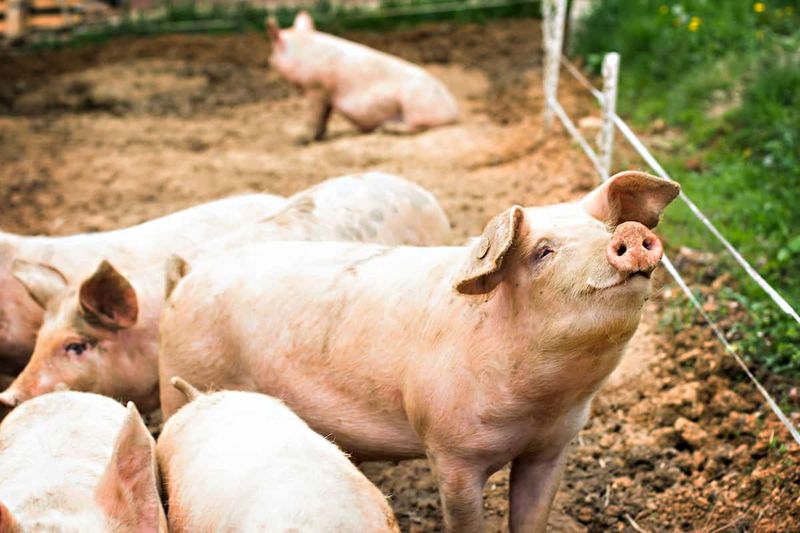
Georgia’s environmental protection laws don’t play around when it comes to pig waste! Unlike dog waste, which many owners casually bag and trash, pig manure falls under agricultural waste management regulations even for single pet pigs.
Composting is the preferred disposal method, but requires a properly constructed bin located at least 100 feet from any water source. Direct application to vegetable gardens is prohibited without proper aging due to potential pathogen concerns.
My mini pig Oscar produces about 2-3 pounds of waste daily – significantly more than most dogs. I installed a three-bin composting system that processes waste into garden-safe fertilizer after six months of decomposition. Several counties offer free workshops on proper livestock waste management for homeowners.
7. Fencing Height Requirements Catch Many Off Guard
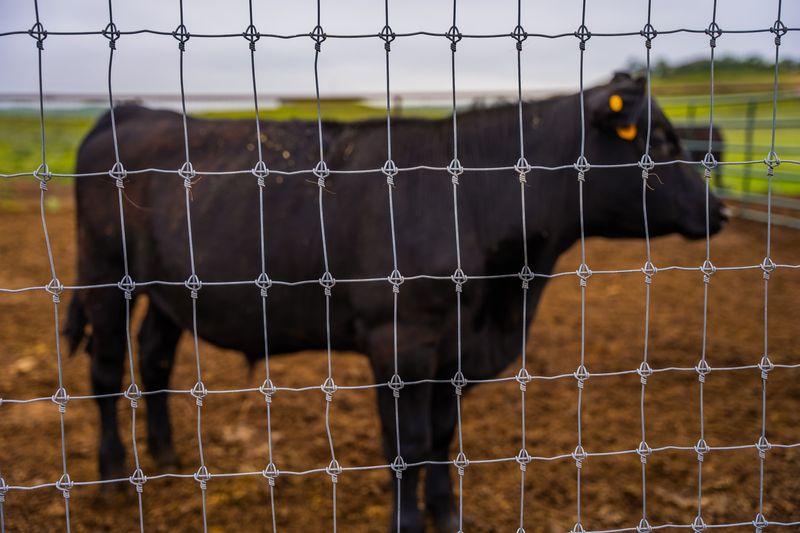
Pigs are escape artists extraordinaire! When Biscuit, my Juliana pig, squeezed through a gap in my fence last year, I quickly learned that Georgia requires specific fencing standards for all swine enclosures.
Minimum fence height must be 30 inches for mini breeds, with no gaps larger than 3 inches between boards or mesh. The bottom must be secured or buried at least 6 inches underground to prevent rooting under. Electric fencing is permitted but must comply with additional safety regulations and warning signage.
Gates require secure latches pigs can’t manipulate – they’re surprisingly clever with their snouts! My pig figured out how to flip a basic hook-and-eye latch within days. I now use carabiners with screw locks on all gates after chasing Biscuit through the neighborhood twice.
8. Noise Ordinances Apply Differently To Porcine Pals
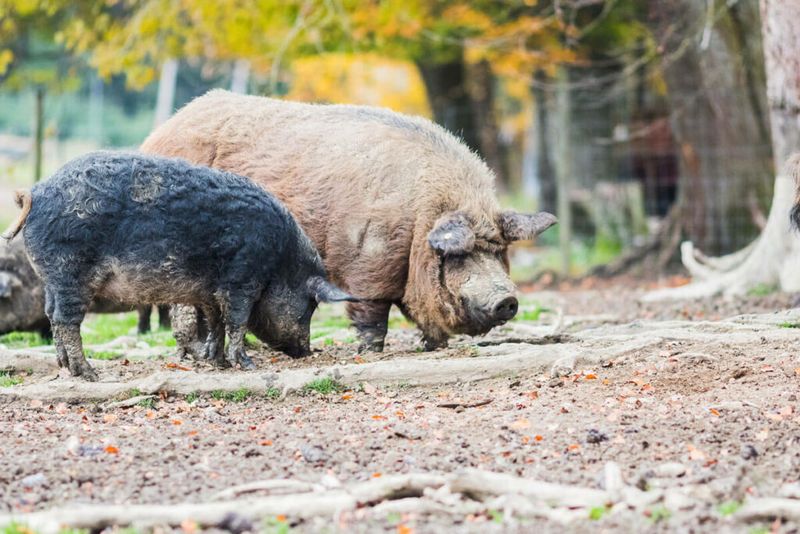
The first time my neighbors heard Pepper squeal, they called animal control thinking something terrible was happening! Contrary to popular belief, mini pigs can be quite vocal, especially during feeding time or when separated from their human companions.
Georgia’s noise ordinances typically exempt livestock sounds during daylight hours in rural areas. However, urban and suburban communities may enforce stricter standards, treating pig vocalizations similar to barking dog complaints.
Training can significantly reduce unnecessary squealing. I established consistent feeding times and taught Pepper that quiet behavior earns treats and attention. Sound-dampening barriers like privacy fences and strategic landscaping help maintain neighborly relations. Several counties now require signed acknowledgments from adjacent property owners before approving mini pig permits in residential areas.
9. Limits On Multiple Pig Ownership

When I brought home a second pig as company for Franklin, I unknowingly violated local regulations! Most Georgia counties limit the number of mini pigs allowed per property based on acreage, not pet status.
Rural properties under 5 acres typically permit 2-3 mini pigs maximum. Urban and suburban areas often restrict households to a single pig regardless of property size. Commercial permits become necessary when exceeding these limits, bringing additional requirements and inspections.
Multiple pigs also face mandatory separation requirements – intact males and females must be housed separately unless breeding is permitted by your specific license type. My solution was neutering Franklin and creating separate sleeping areas while allowing supervised socialization. Check your county’s specific ordinances, as these regulations vary significantly across Georgia’s 159 counties.
10. Quarantine Rules For Out-Of-State Pig Purchases
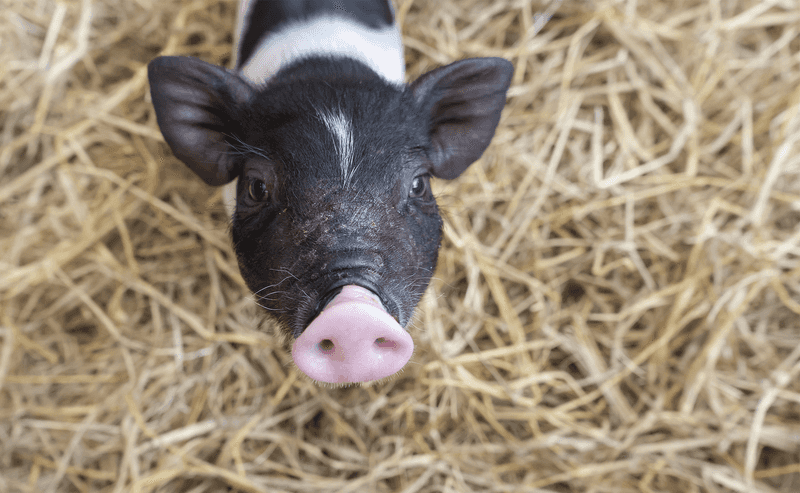
Georgia takes agricultural biosecurity seriously! When I purchased Bella from a Tennessee breeder, I was surprised to learn about mandatory quarantine periods for all incoming swine.
Out-of-state pigs require a Certificate of Veterinary Inspection (CVI) issued within 30 days of entry into Georgia. Additionally, all imported swine must test negative for brucellosis and pseudorabies within 30 days before crossing state lines.
Upon arrival, a 21-day isolation period is required before introducing your new pig to existing animals. During this time, the pig must remain on your property but separated from other livestock. I converted our garden shed into a temporary quarantine space for Bella, complete with separate feeding equipment and dedicated boots to prevent cross-contamination. Failure to comply can result in fines exceeding $1,000.
11. County-Specific Ordinances Create A Regulatory Maze

Georgia’s 159 counties each have their own spin on pig regulations! When I moved just 20 miles from Cherokee to Forsyth County with my mini pig Rosie, I encountered completely different requirements despite staying in metro Atlanta.
Cherokee County classified Rosie as a pet with minimal restrictions, while Forsyth considered her livestock requiring specific acreage minimums. Some counties mandate annual permit renewals, while others issue lifetime registrations.
The Georgia Pork Producers Association maintains a helpful database of county-specific ordinances, updated quarterly. I recommend contacting both county animal control and the agricultural extension office before making any pig-related decisions. Local farm supply stores often know which veterinarians service mini pigs in your specific area – invaluable information when emergency care is needed.
